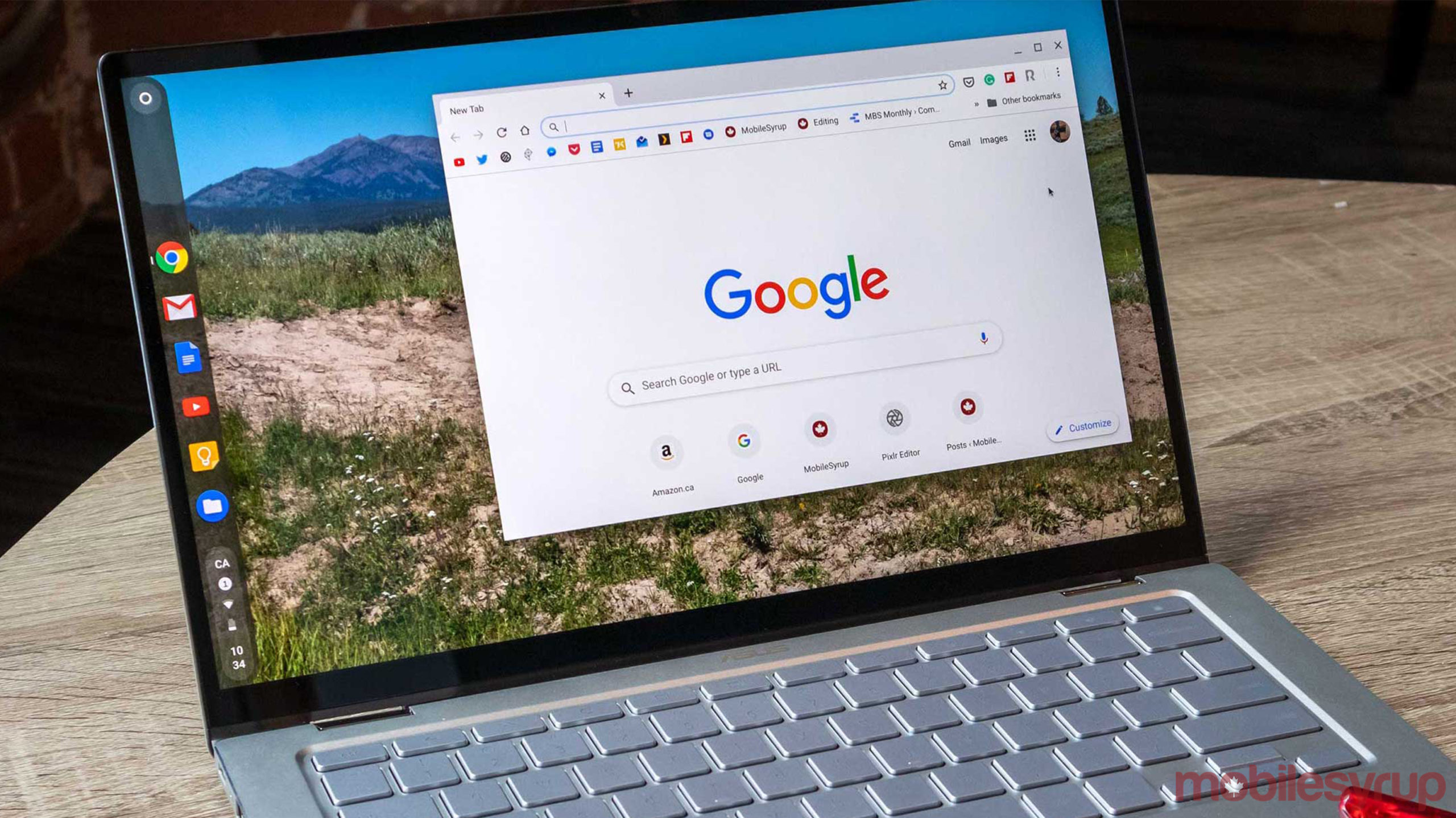
Over the last few years, Google has experimented with different ways to hide or mask the URL in Chrome’s address bar. Each time, the company has gotten backlash from users because having access to the full URL of a webpage is important.
However, that hasn’t stopped Google from trying yet again. Android Police spotted some new flags in Chrome’s Dev and Canary channels of version 85 that modify the appearance and behaviour of the address bar. If you’re unfamiliar with Chrome flags and channels, flags are a tool used to enable and disable experimental features for testing. Chrome channels, on the other hand, are a variety of pre-release states ranging from Canary builds to Dev, Beta and eventually the stable release.
The main flag spotted by Android Police, called ‘Omnibox UI Hide Steady-State URL Path, Query and Ref,’ hides everything in the URL except the domain name. For example, if you went to “https://mobilesyrup.com/2020/06/11/sony-playstation-5-console-design/” Chrome would show “mobilesyrup.com” instead.
Chrome’s other flags modify this new behaviour. The first reveals the full address bar when you hover over it — by default, users have to click the bar to reveal the full address. As for the other flag, it hides the address bar once users interact with the page.
Along with the new flags, a Chromium Bug Tracker issue page was created to track these changes.
Hiding parts of the URL could help users detect illegitimate sites
Although Google hasn’t shared anything publicly about the change, Android Police notes that the company has previously argued hiding parts of the URL could improve security. For example, by hiding everything except for the domain name, it makes it easier for users — especially the less tech-savvy among us — to see if a website is legitimate or not.
Considering the change to address bar behaviour could include the ability to reveal URLs by hovering over them with the mouse, I don’t think this change would be that egregious. It could actually help some users avoid phishing and other scams.
That said, it’s also worth noting that hiding parts of the URL could benefit Google. Android Police notes that Google’s Accelerated Mobile Pages (AMP) and similar technologies hope to keep people on Google-hosted content as much as possible. Chrome on Android already modifies the address bar on AMP pages to hide that Google hosts them. By bringing similar behaviour to desktop, it could lead to URLs becoming less relevant which could in turn impact the decentralized nature of the internet entirely.
Of course, a few flags in a pre-release version of Chrome don’t necessarily mean anything is going to change. Google experiments with its products and not every experiment reaches the stable release. If these changes do, and they cause enough problems for you, there are alternatives to Chrome available, some of which are quite good now.
Source: Android Police
MobileSyrup may earn a commission from purchases made via our links, which helps fund the journalism we provide free on our website. These links do not influence our editorial content. Support us here.


